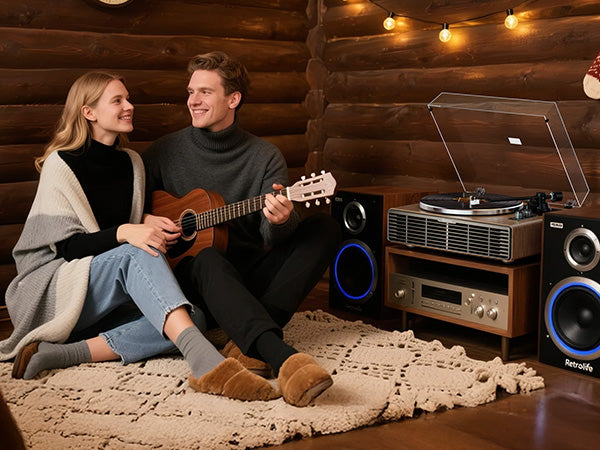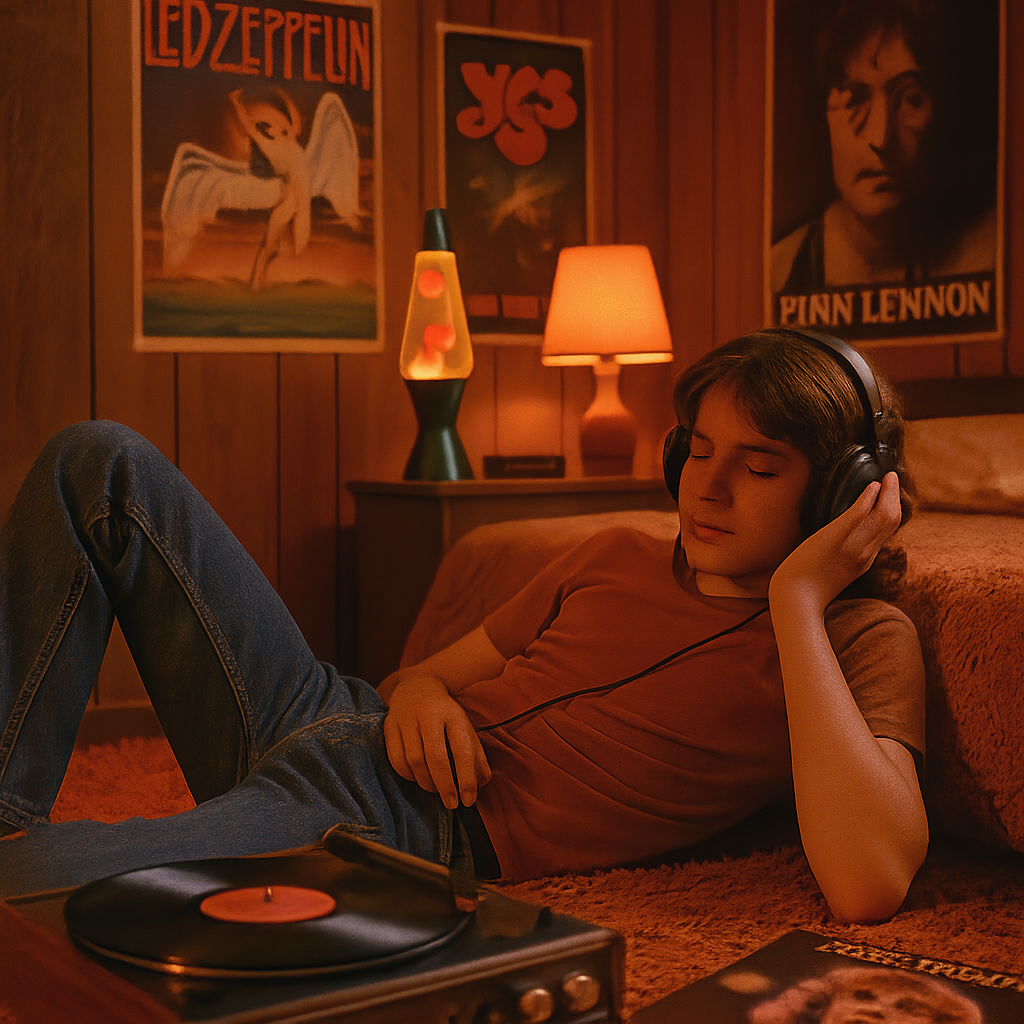In the realm of vinyl, not all turntables are born equal. While the audiophile listening deck is engineered for the nuanced retrieval of sonic detail in a tranquil setting, the DJ turntable is a different beast altogether—a robust, responsive instrument built to withstand the rigors of performance and the creative demands of mixing, scratching, and beat juggling. Choosing your weapon for the DJ booth is a critical decision, one that impacts not just your workflow, but the very expression of your musical voice. Forget polite playback; we're talking about a tool for real-time sonic manipulation.
The transition from passive listener to active manipulator of vinyl requires a machine that can keep up, respond instantly, and endure the kind of hands-on interaction that would make a delicate hi-fi turntable shudder. So, what are the non-negotiables? What separates the contenders from the pretenders in the world of DJ decks?
The Pillars of a Performance Turntable
To truly serve a DJ, a turntable must possess a specific set of attributes. These aren't just features; they are foundational elements that enable the art form.
-
Direct-Drive Motor: The Heart of the Matter
This is, arguably, the most crucial distinction. Unlike belt-drive turntables, where an elastic belt connects the motor to the platter (excellent for isolating motor noise in hi-fi setups), a direct-drive system has the motor directly coupled to the platter.
-
Why it's essential: Instant start/stop times are paramount for accurate cueing. When you hit that play button, you need the record at full speed now, not after a leisurely ramp-up. Equally, when you stop it, it needs to halt precisely. Direct-drive also offers superior speed stability under the duress of scratching or manual manipulation of the record. There's no belt to stretch or slip, ensuring consistent RPMs. The idea that belt-drives could ever seriously contend in a professional DJ environment is, frankly, a non-starter for anyone who's spent time in the trenches. For a deeper understanding of motor mechanics, howstuffworks.com offers accessible explanations of how record players work, including drive systems.
-
-
High Torque: The Power to Perform
Torque, in this context, refers to the rotational force of the platter. A high-torque motor ensures the platter gets up to speed quickly and, more importantly, maintains that speed even when the DJ is applying pressure to the record during scratching or back-cueing.
-
Why it's critical: Low torque means the platter will slow down or even stop when you're working the vinyl, making precise scratches and quick cues impossible. It’s the difference between a responsive instrument and a sluggish toy. Modern professional DJ turntables boast impressive torque figures, often measured in kgf·cm (kilogram-force centimeter).
-
-
Rock-Solid Build Quality: Built for Battle
DJ turntables live a hard life. They're transported, set up in vibrating booths, and subjected to hours of intense physical interaction.
-
Why it matters: A flimsy construction won't last. Look for a heavy, well-damped chassis (often utilizing materials like die-cast aluminum and heavy rubber) to minimize vibrations and feedback, especially in loud club environments. The tonearm assembly also needs to be robust yet precise.
-
-
Adjustable Pitch Control: The Beatmatcher's Best Friend
The ability to finely adjust the playback speed (pitch) of a record is fundamental to beatmatching—the art of seamlessly blending two tracks together.
-
What to look for: A smooth, accurate pitch fader is essential. Standard pitch ranges are typically +/-8%, but many modern decks offer wider ranges like +/-16% or even +/-50% for creative effects. A pitch reset button (returning to 0% or absolute pitch) is also a highly valued feature.
-
-
Tonearm Design: Tracking Under Pressure
While audiophile tonearms prioritize delicate tracking and resonance control, DJ tonearms must be rugged and offer excellent skip resistance, especially during aggressive scratching.
-
Common types & considerations: S-shaped tonearms are a classic choice, offering good tracking. Straight tonearms are often favored by scratch DJs for their perceived superior skip resistance, though this is debatable and often comes down to cartridge setup. Key adjustments include tracking force (VTF), anti-skate, and tonearm height (VTA), all crucial for optimizing performance with your chosen cartridge.
-
-
Essential Ergonomics:
Features like a stylus illumination light (target light), clear RPM selection buttons (33/45, sometimes 78), and a stable, well-damped platter all contribute to a turntable's usability in a demanding DJ environment.
The Undisputed Champion and Its Progeny: The Technics Legacy
No discussion of DJ turntables can ignore the monumental impact of the Technics SL-1200 series. First introduced in 1972, and particularly its SL-1200MK2 iteration (1979), it became the undisputed industry standard for decades. Its direct-drive motor, high torque, and legendary durability made it the workhorse of clubs and DJs worldwide. It wasn't just a piece of equipment; it was, and for many still is, an instrument that defined the art of DJing.
Panasonic (Technics' parent company) discontinued the original SL-1200 line in 2010, much to the dismay of the DJ community. However, due to overwhelming demand, they've since revived the legend with new models like the SL-1200MK7 and the higher-end SL-1200G/GR series. These modern iterations maintain the core DNA while incorporating updated motor technology and features.
Beyond the Benchmark: Strong Contenders in the Modern Era
While Technics casts a long shadow, the market is now populated with excellent alternatives that often provide comparable performance, sometimes at more accessible price points:
-
Pioneer DJ PLX Series (e.g., PLX-1000, PLX-500): Pioneer, a dominant force in DJ gear, offers robust, high-torque turntables that closely emulate the feel and functionality of the classic SL-1200. The PLX-1000 is a professional-grade option.
-
Reloop RP Series (e.g., RP-7000 MK2, RP-8000 MK2): Reloop has carved out a strong reputation for building solid, feature-rich DJ turntables. The RP-8000 MK2 even integrates MIDI controls for DJ software.
-
Audio-Technica AT-LP Series (e.g., AT-LP140XP, AT-LP120XUSB): Audio-Technica offers a range of direct-drive turntables that provide excellent value, with models suitable for both aspiring and professional DJs. The AT-LP140XP is a particularly strong contender in the prosumer space.
-
Stanton STR8/ST Series: Stanton is another legacy brand with a history of producing DJ-focused turntables, known for their straight tonearm options favored by some scratch DJs.
When evaluating these, always refer back to the core features: direct-drive, high torque, build quality, and precise pitch control. Reputable DJ equipment review sites like DJ TechTools often provide in-depth comparisons and user feedback.
The Cartridge & Stylus: The DJ's Point of Contact
The turntable is only part of the equation. The cartridge and stylus (needle) are where the rubber meets the road—or rather, where the diamond meets the groove. DJ cartridges are specifically designed for:
-
High Output: To provide a strong signal to the mixer.
-
Excellent Tracking Ability: To stay in the groove during aggressive scratching and back-cueing.
-
Durability: To withstand the rigors of DJ use.
Classic choices include the Ortofon Concorde series (with various models tailored for scratching or mixing) and historically, the Shure M44-7 (though discontinued, its legacy influences many current designs). Choosing the right cartridge and stylus, and setting them up correctly, is crucial for both sound quality and performance.
The XJ-HOME Perspective: Precision Meets Passion
At XJ-HOME, while our focus often leans towards the audiophile pursuit of sonic purity in home listening environments, we recognize and deeply respect the artistry and technical skill of DJing. The DJ's demand for precision, reliability, and a deep connection with their equipment resonates with our own ethos. Whether it's the meticulous setup of a high-end listening system or the robust calibration of a DJ deck, the underlying principle is the same: every component matters. Understanding the fundamentals of audio technology, a passion we champion at https://xenonjade.com, empowers users across all spectrums of the vinyl world, from the dedicated audiophile to the performing DJ.
The Final Spin: Choosing Your Deck
Ultimately, the "best" DJ turntable is the one that meets your specific needs, budget, and performance style. For serious DJing, a high-torque, direct-drive model is non-negotiable.
-
For the aspiring DJ or those on a tighter budget: Models like the Audio-Technica AT-LP120XUSB or Pioneer DJ PLX-500 offer a solid entry point.
-
For the professional or serious enthusiast: The Technics SL-1200MK7, Pioneer DJ PLX-1000, or Reloop RP-7000/8000 MK2 are industry-standard choices that won't disappoint.
Consider the kind of DJing you'll be doing. Heavy scratching? Prioritize high torque and a robust tonearm. Primarily mixing? Focus on smooth pitch control and overall stability. If possible, get hands-on experience before you buy. Feel the platter, the faders, the tonearm. Your turntables will become an extension of your musical expression—choose wisely, and they'll serve you well for years of creative exploration. Happy mixing!





Leave a comment
All comments are moderated before being published.
This site is protected by hCaptcha and the hCaptcha Privacy Policy and Terms of Service apply.